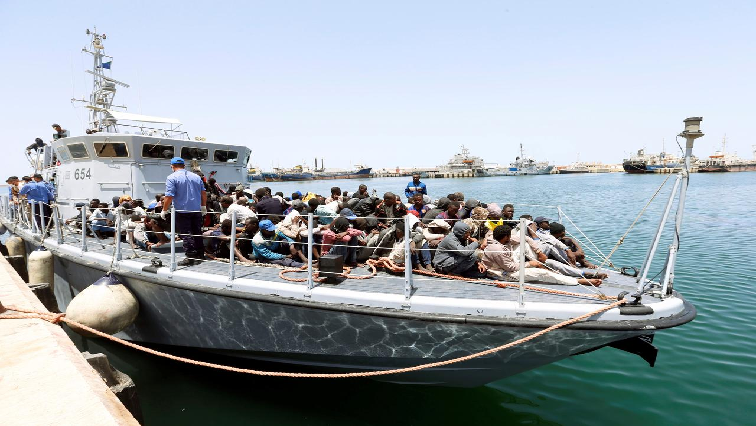A new United Nations report has found that despite dangers, majority of irregular migrants from Africa to Europe would still travel. They are doing so not because they are fleeing danger but rather because their home countries are not able to meet their aspirations quickly enough.
The UN Development Programme’s Scaling Fences: Voices of Irregular African Migrants to Europe presented the results of an extensive study exploring the perspectives and experiences of almost 2000 individuals from 39 African countries who migrated through irregular routes to Europe.
It’s a report that aims to address misconceptions about irregular African migration to Europe; and is the second major review of contemporary development issues affecting Africa to be published by UNDP’s Regional Bureau for Africa.
UNDP’s Administrator Achim Steiner says, “It is not necessarily the most desperate, the least educated, the most starving who actually make up the majority of irregular migrants and again this should not surprise us. This is in a sense, common sense whether you look back at the Irish famine which shaped so much of this country’s early migration, if you look back to many other diasporas that have taken place – often it is those who have either been able to get some education, get some sense of another horizon, have perhaps some savings, have the energy, the courage to take the risk of undertaking this journey who get up and leave.”
Among the key findings of the report is 58% of respondents were either in school or earning at the time of their departure
For 66%, earning or the prospect of earning at home was not a factor that constrained the decision to migrate.
62% felt unfairly treated by their governments while 77% felt their country’s political system provides no opportunity through which they could exert influence – prompting the move as UNDP Assistant Administrator Ahunna Eziakonwa explains.
“We do know that prominent among them were many young Africans, men and women in their prime, all of whom had weighed their odds and arrived at the same conclusion – that risking death for an uncertain future in a foreign land held greater promise than life and opportunities they faced at home in their own countries. As a development practitioner and for all those who are leaders in our world today, this is an indictment of great proportions.”
With barriers to opportunity – the question of choicelessness – being a prominent feature both in countries of origin and when they arrive at their destination.
“The migration crisis is disrupting African development progress in ways we’re just beginning to grasp. It is essential that we gain a clearer understanding of its drivers so that we and other development partners can respond more effectively and in my view, it is about that all important word, hope.”
About 93% of those who migrated experienced danger en route to their destination but only 2% indicated that those risks would in hindsight have caused them to stay home. With the report pointing to the need for greater legal pathways in Europe to address the need.
Achim Steiner says, “The cliché profile of the irregular migrant does not fit the story of the most desperate moving, which kind of complicates the simplistic discussion that we’ve often heard – if only we can make development happen in those countries migration will stop. Yes it will influence it, it will shape it but not in ways that are mechanical or in a quantitative sense simply a function of more millions into countries of origin, less migrants in the countries that receive them. Indeed the fascinating thing about Scaling Fences is it is the story of development and it is the contemporary articulation through the eyes of those who are irregular migrants of the development state of thinking and experience of the 21st Century we live in right now.”
A report with implications for African countries particularly on development – but also for Europe where too often the politics and policies around migration have failed to address the issue comprehensively.


